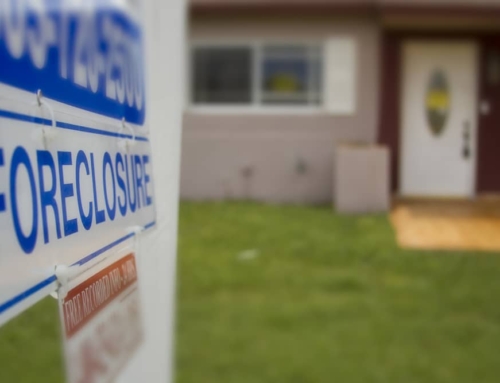When life is so uncertain, with the prospect of war and economic calamity so near, the security of homeownership becomes even more important.
Buying a home gives you an opportunity to stay put, plant roots in a community and grow in one place for awhile. Homeownership gives you a sense of purpose, of empowerment and of permanence.
For those with poor credit, or renters just out of college, homeownership can seem like a far-off dream. And while it’s good to be focused, it’s helpful to have a few simple steps get you on the path to achieving that dream.
Here are the first five steps that will get you closer to your goal of owning your own home. Next week, I’ll give you another five steps:
- Decide whether you should rent or buy. With interest rates at 40-year lows, many renters have hopped onto the homeownership train. Rental vacancies are rising, while first-time buyer houses, townhomes and condos have been snapped up.
But that doesn’t mean you should buy. If you’re uncertain about your job prospects, or if you don’t know where you want to live, buying a home today can mean you’ll be unable to afford it tomorrow. If you know where you want to be and your job prospects are good, then make the commitment to buy a home.
- Figure out how much you can afford to spend. With interest rates as low as they’ve been since John F. Kennedy was running for office, home buyers can afford more than they think when it comes time to get preapproved for a loan.
With 30-year mortgages averaging less than 6 percent for all of 2003, home buyers with little or no debt and some cash for a down payment may be able to afford as much as four times their gross annual income. That’s a lot of buying power.
But before you start hunting for a house, visit an online lender or a local mortgage broker or banker to get preapproved for your loan. Preapproval means your lender has committed in writing to funding your loan if the home appraises out in value. Having that written commitment makes you a stronger home buyer.
- Get your cash together for your down payment and closing costs. Years ago, you had to have 20 percent of the purchase price of the house available as a cash down payment, plus extra cash available for reserves (typically lenders like to see you with an extra month’s mortgage in the bank, just in case), and closing costs.
Today, you can not only purchase a home with nothing down, you can finance the closing points on top of it. Voila! The 103 percent mortgage. But just because you can go this route doesn’t mean you should. You won’t get the best interest rate or terms on your mortgage, and you could be putting yourself at financial risk.
- Build credible credit. Your credit score is like your financial SAT. It’s a numerical equivalent for how well you’ve managed credit throughout your adult life. So if you’ve paid your credit cards on time and in full, you probably have excellent credit. If not, well, you should figure out how bad it is and what you can do to improve your credit score.
These days, our ability to finance a home and even get the best insurance rates is driven by our credit score. Most lenders use the Fair Isaacs score, which you can purchase online at myFICO.com. The $12.95 you pay for the score includes a copy of your credit history as well as specific suggestions on how to improve your credit score.
You can also get a copy of your credit history for free from E-loan.com or by writing the three major credit reporting bureaus, Equifax, Experian, and Trans-Union. In some cases, you’ll have to pay a small charge for the report, since not all states mandate that the credit reporting bureaus give you a free credit report once a year.
- Get your legal issues in order. Many first-time buyers purchase homes with the help of others. Either they have a partner, or their parents or relatives co-sign the mortgage. If you try to purchase a home before your divorce is finalized, or if you’re involved in a lawsuit, that can also prevent you from achieving your goal.
Borrowing someone’s signature means you’re tying your credit to that individual’s. What many home buyers and their co-signers often don’t realize is that putting their signature on the loan documents makes them entirely responsible for paying off that debt, should the lender not be paid.
If you’re buying with a partner, you’ll want to write up a legal document that addresses some of the questions that are sure to crop up, such as what happens if you get into a disagreement about the property, and what happens if one of you wants to sell and the other doesn’t? What happens if repairs must be made and one person doesn’t have the cash to do it? And, how will you hold title?
By getting your legal ducks in a row ahead of time, you’ll be ready to make an offer when the right property appears.
Next week: The final 5 steps to homeownership.
Published: Apr 3, 2003






Leave A Comment